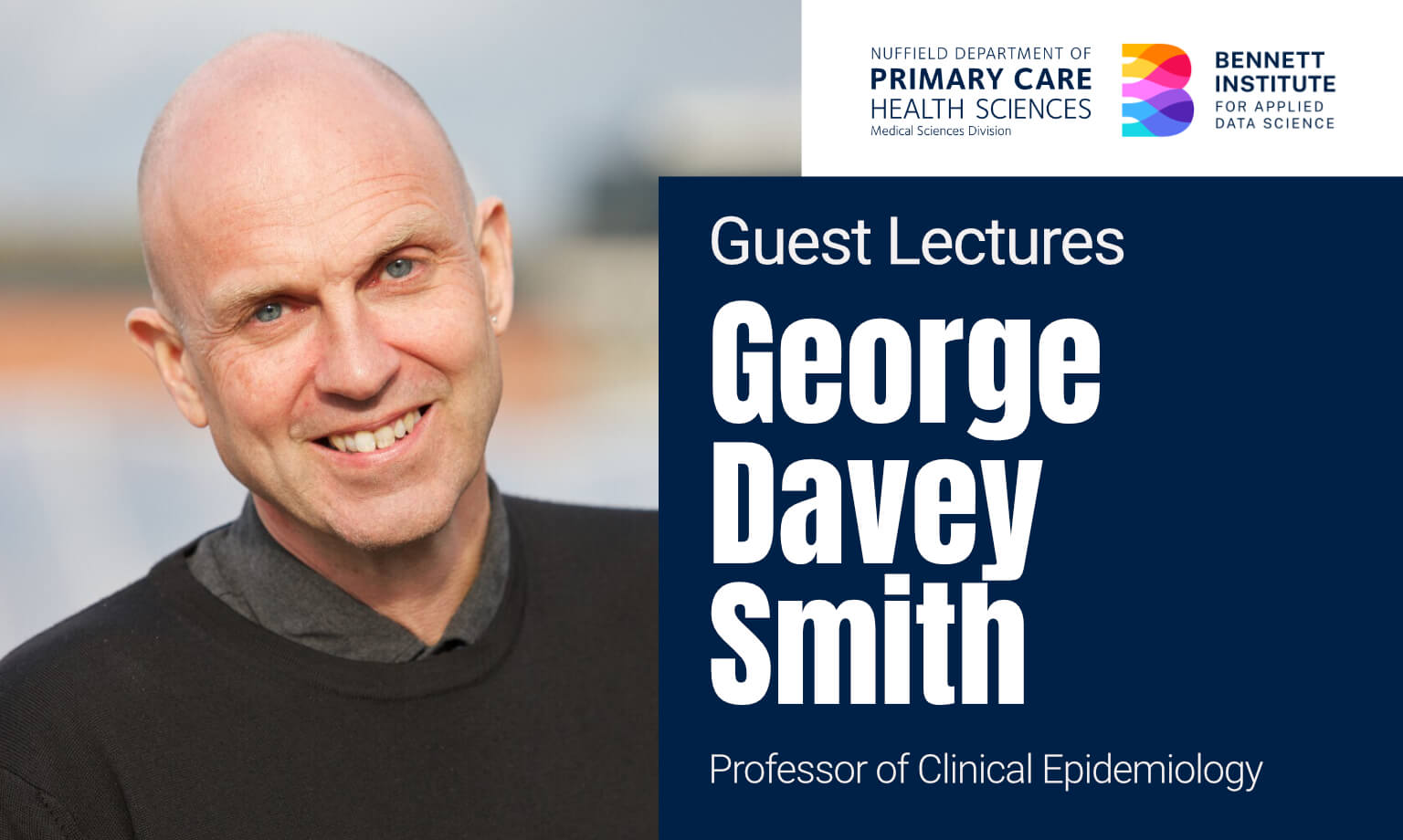At the end of September, the Bennett Institute will be hosting a visit by George Davey Smith, Professor of Clinical Epidemiology and Director of the Medical Research Council’s Integrative Epidemiology Unit at the University of Bristol.
We’re very excited about this. George is a highly regarded scientist, a prolific writer and researcher, and generally a good egg. You might have heard him interviewed by Jim Al-Khalili on BBC Radio 4’s Life Scientific.
Among many other roles, he was formerly the leader of the multi-generational Avon Longitudinal Study of Parents and their Children (ALSPAC) in Bristol (more commonly known as the Children of the 90s project) and editor-in-chief of the International Journal of Epidemiology. George also says he’s “probably the only old-school epidemiologist” to have been made a member of the European Molecular Biology Organisation (EMBO). He’s certainly one of the UK’s finest minds in epidemiology, and we’re delighted to have him.
As part of the visit, George will be giving two lectures:
Evening Lecture – From correlation to cause: triangulating evidence in theory and practice
WHERE: Cheng Kar Shun Digital Hub, Jesus College, Market St entrance, Oxford
WHEN: 5pm, Monday 30 September, 2024
This talk, open to all, will cover many themes common to George’s career and the work of the Bennett Institute, including:
- bringing together diverse sets of skills and knowledge
- making better use of people’s data
- improving population health
There will be drinks and canapés.
Everyone is invited to come along and hear George speak, but inevitably, spaces are limited, so please use the link below to reserve a seat.
➡️ Reserve a free seat for George’s Evening lecture.
Lunchtime Lecture – Mendelian randomisation: what it was, what it is, and what it should become
WHERE: Cheng Kar Shun Digital Hub, Jesus College, Market St entrance, Oxford
WHEN: 12.30pm, Monday 30 September, 2024
This is a more academically focused talk, open to the research community. Here’s the abstract:
Mendelian Randomisation (MR) uses the special properties of germline genetic variation to strengthen causal inference regarding how modifiable exposures influence disease outcomes. Few papers were published in the first decade of its 20 year history, but since then there has been an exponential increase, which shows no sign of slowing down. The vast majority of current papers are, at best, uninformative, and at worst, nonsense.
In this talk I will restate the fundamental assumption of MR - that of gene-environment equivalence - and the conditions for causal effect identification and estimation. I will then group the threats under three headings:
- Noodles: papers that are prima facie nonsense, generated from easily available two sample MR data and sub–ChatGPT text.
- No Nulls: influential early MR findings suggested that some drug targets – such as HDL cholesterol level or C-reactive protein – were unlikely to be important. Null MR studies are now increasingly rarely seen.
- Numb Skulls: the simplicity of the MR approach is being obscured by increasingly complex methods, the assumptions of which will be opaque to most readers and most authors of papers implementing them. The first of what should be a series of retractions of papers based on one such method has occurred.
The common source of these threats will be discussed, approaches to mitigating them advanced, and some promising future directions introduced.
Lunch is provided. To reserve a seat, please use the link below.



